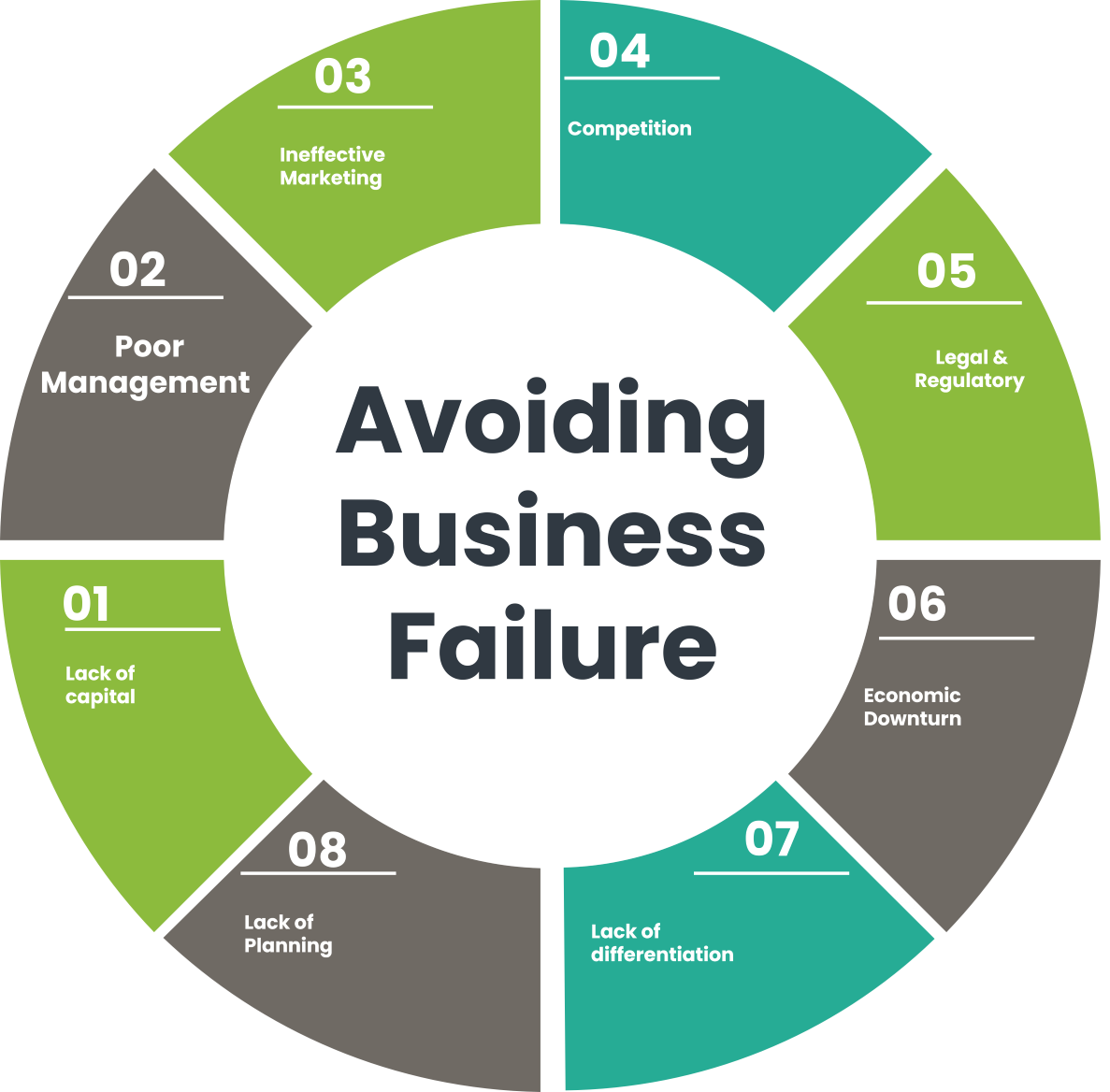Our Guide To Avoiding Business Failure
In the early 1990’s my father’s business failed. It was heartbreaking for him, his employees, and his family. So many people relied on his business and to see it go literally aged him. He did however, with the help of his friend and family, get through it and go on to start a new successful business.
I was quite young at this time but since then I have learned that there are many reasons why small businesses fail, what follows is a list of some of the common factors that contribute to small business failure:
Lack of capital: Many small businesses fail because they don’t have enough money to cover their expenses and invest in growth. They may have underestimated the amount of money they need to get started, or they may have encountered unexpected expenses or losses.
Poor management: Small business owners need to have a range of skills to run a successful business, including financial management, marketing, and leadership. Without these skills, they may struggle to make smart decisions and adapt to changing market conditions.
Ineffective marketing: Even the best products or services won’t sell if people don’t know about them. Small businesses need to be able to reach their target customers with effective marketing strategies.
Competition: Businesses may struggle to compete with larger, more established companies that have more resources and brand recognition.
Legal and regulatory issues: Small businesses need to comply with a range of regulations and laws, which can be challenging for owners who aren’t familiar with the legal system.
Economic downturns: Economic downturns can make it harder for small businesses to succeed, as customers may have less disposable income to spend on goods and services.
Lack of differentiation: Small businesses may struggle to differentiate themselves from their competitors and offer unique value to customers.
Lack of Planning: Small businesses that fail to plan are planning to fail. Planning is important so you can ensure that the business is heading in the right direction and when it appears to be deviating from the plan then changes can be made.
Click Below To Access The Guide

It’s important to note that these factors don’t guarantee that a small business will fail but any one or a combination of them will make it hard for the business to survive.
What follows then is a guide of how small business owners can overcome each of these common factors of small business failure.

